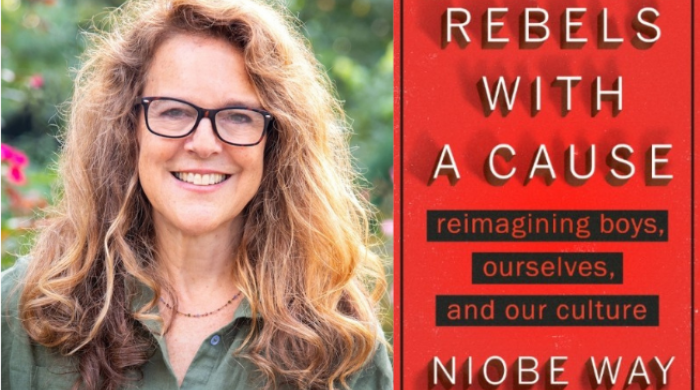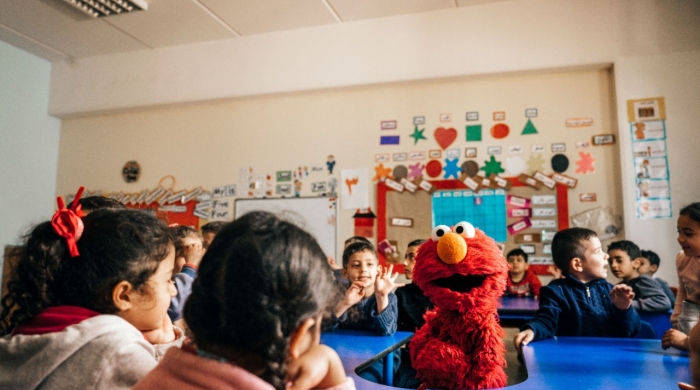An analysis of experiments with radio and TV dramas across the world show the positive effects of narrative interventions in shaping norms and raising awareness of social issues.
Soap operas are known for outrageous schemes and scandalous affairs, but an NYU Steinhardt researcher finds that they can also serve as effective interventions for preventing intergroup violence in conflict-ridden areas by shaping social norms, promoting understanding of different perspectives, and encouraging people to create change.
In an analysis of research on narrative interventions, author Rezarta Bilali, associate professor of psychology and social intervention at NYU Steinhardt, outlines strategies used in fictional storytelling to prevent violence in countries including Rwanda, Burkina Faso, and the Democratic Republic of the Congo.
Her findings are published in European Review of Social Psychology.
“We have only recently started to understand the power of narrative interventions to address intergroup conflict and violence, and the different ways in which narratives can influence conflict-related behaviors, social norms, and attitudes,” says Bilali.
She identifies seven strategies (known as psychological mechanisms) for individual and social change:
- Social norms—showing desired behaviors in a community
- Role modeling—using characters to encourage or discourage behavior
- Moral exemplars—characters demonstrating exceptional behavior (e.g, heroism)
- Awareness-raising and critical reflection—highlighting important social issues
- Perspective-taking and empathy—exposing audiences to counternarratives
- Parasocial contact—showing fictional encounters with “outsiders”
- Group malleability beliefs—promoting the perception that groups can change over time
Bilali notes that in narratives, these strategies are often interconnected and difficult to disentangle, but through her research and analyses of the interventions she found links between isolated mechanisms and distinct outcomes.

Overall, narrative interventions have shown to have a beneficial impact and should continue to be used as a tool for forging positive pathways forward among groups in conflict.
Interventions around the world
Rwanda
In post-genocide Rwanda, two experimental studies explored the impact of a radio soap opera titled Musekeweya that depicted a violent land dispute and eventual reconciliation between two villages. The studies found that the drama increased intergroup trust.
Democratic Republic of the Congo
In a field experiment, Bilali and colleagues created two versions of the radio drama Kumbuka Kesho. Listeners were either exposed to an episode in which characters (role models) addressed community issues such as corruption and intergroup conflict, or an episode in which characters did not take action. The participants who heard the role-modeling episode were more willing to address grievances and had greater belief in collective ability to effect change.
Burkina Faso
In a field experiment in the Sahel region in Burkina Faso, participants in different villages were exposed to a 12-week radio drama that had the goal of countering violent extremism. Compared to those who were not exposed to the radio drama, listeners exhibited lower justification of violence and higher intentions to collaborate with security forces. They were also more likely to prioritize violent extremism as a critical issue that needs to be addressed in the country.
While narrative interventions yielded positive outcomes in many cases, some studies revealed pitfalls. Bilali found that narratives in post-conflict settings can be more effective than narratives during conflicts because depictions of war and trauma may exacerbate real-life stress for participants.
“There are some socio-political contexts related to societal expectations, prevalent norms, and policies that can make interventions more or less effective in conflict settings,” says Bilali. “Overall, narrative interventions have shown to have a beneficial impact and should continue to be used as a tool for forging positive pathways forward among groups in conflict.”
Press Contact
(646) 469-8496
Related Articles
Niobe Way's New Book on What Teenage Boys Teach Us
The professor of applied psychology explores what “boy” culture teaches us about the roots of mental illness, loneliness, and violence—and offers listening with curiosity as a solution.
Preventing Adolescent Suicide: Recommendations for Policymakers, Practitioners, Program Developers, and Researchers
Dr. Pamela Morris-Perez led the new Social Policy Report (SPR) published yesterday in the Society for Research in Child Development (SRCD). Together with co-authors Rachel Abenavoli, Adam Benzekri, Sarah Rosenbach-Jordan and Gianna Rose Boccieri, the report reviews evidence for suicide prevention strategies designed to address rising trends in adolescent suicide and offers recommendations for policy, practice, program development, and research.
Children Affected by the Syrian Refugee Crisis are Effectively Learning Numbers, Letters, and "Emotional ABCs" through the Ahlan Simsim Initiative
NYU Steinhardt’s Global TIES research finds that introducing an Arabic version of Sesame Street, along with support services, helped kids "not just survive, but thrive."
Related Programs
Related Department

Applied Psychology
246 Greene Street , New York, NY 10003
P: 212-998-5555
E: applied.psychology@nyu.edu





